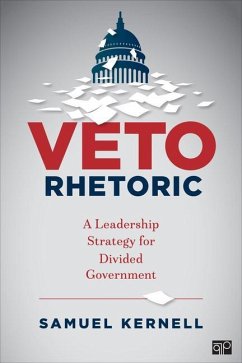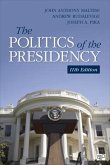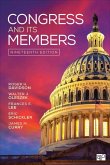In Veto Rhetoric, Samuel Kernell offers a fresh perspective to understanding national policy making in this era of divided government by showing how veto rhetoric forces Congress to pay careful heed of the president's objections early in deliberations as legislation is forming.
Hinweis: Dieser Artikel kann nur an eine deutsche Lieferadresse ausgeliefert werden.
Hinweis: Dieser Artikel kann nur an eine deutsche Lieferadresse ausgeliefert werden.








